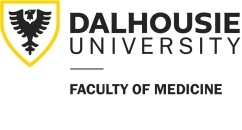Educational Leadership Award for Collaborative Teaching
Award Description
This award is presented annually to recognize the collaborative work of a team of colleagues whose leadership has made a significant contribution to student learning at the department, Faculty or institutional level (primarily at Dalhousie, and possibly beyond the institution). The award is open to all Dalhousie University faculty members, including department chairs and deans. The award may be withheld if there are no suitable candidates.
Criteria
The principal and overriding consideration in adjudicating submissions is that the projects reflect significant teaching collaboration in values, design, implementation, practices, and assessment in fostering student learning. Submissions should demonstrate noteworthy student engagement resulting from the collaborative approach to teaching, based on systematic assessment of learning outcomes. The project should have potential for application and influence beyond the originating department(s).
In adjudicating applications, the Selection Committee draws on the following criteria to assess the relative contributions, effectiveness, and significance of the collaborative teaching projects.
Goals
- Extent to which the project is designed to increase the effectiveness of students’ learning.
- Specification of types of student learning that the project is intended to foster.
- Clear statement of the intended learning outcomes and their significance.
- Description of how collaboration contributes to overall project objectives and effectiveness.
- Implementation
- Clear description of how students have been engaged in learning through the project.
- Extent to which design of project is appropriate to and how well it was carried out in practice, given the project goals.
- If applicable, explanation of how the technology employed is appropriate and supports student learning.
Active Learning
- Extent to which the project involves active student engagement in learning.
- Description of various strategies employed to develop student learning, including forms of group collaborative learning.
- Indication of how formative and summative assessment is employed to foster student learning.
Evidence of Impact on Student Learning
- Tangible assessment evidence showing that the project objectives were met, that students learned what was intended, and that student learning effectiveness was increased.
- Extent to which evidence cited is systematic and integral to providing feedback for project improvement, and demonstrates that the project is sustainable.
- Extent to which evidence is demonstrative of the development of innovative curricula to support diversity, developing cross-cultural competencies, and enhancing the understanding of groups who have experienced historic and ongoing disadvantage and harm.
- Evidence that the team was successful in fostering safer spaces by implementing innovative and culturally responsive pedagogies that specifically support and enhance diverse student populations’ educational experiences.
Scholarship
- Description of how the design, implementation, and assessment of the project are informed by the scholarly work of others. Include a cogent bibliography.
- Overall scholarly merit of the application and reporting of the project, and the contribution of the project to the understanding and practice of teaching and learning.
Impact
- Extent to which the approach is likely to be attractive to others and might apply to a wide range of contexts.
- Potential influence of the collaborative project beyond the originating unit Examples of such projects could include, but are not limited to:
- innovative curriculum development or program design/renewal
- development of policies or plans that enhance teaching and learning
- educational/community outreach and development
This award shall normally be awarded once to any single collaboration, but may be awarded more than once to specific individuals within the collaborative groups over the course of their careers at Dalhousie.
A nomination package must include
- Letter of nomination (max. 1,000 words or 2 pages)
- Project Description including: design, objectives, how the project was informed by the relevant scholarship, implementation, evidence of impact on student learning via assessment, and sustainability of the project. (max. 5,000 words)
- The nominees CVs (max. 2,000 words per member of the team)
- Letters of support (max. 1 page)
- Two letters of support from current and/or former students*
- Two letters of support from colleagues
- Additional supporting materials (e.g., course descriptions, relevant publications or presentations, written comments from Student Learning Experience Questionnaire, student recruitment and retention data, student work, additional letters of support, etc.) (max. 10 pages)
- 150-word biography of nominee (to be used for communication purposes should the nominee be selected to receive the award)
Nominators should inform nominees of their nomination, providing nominees with enough time to write and compile the sections of the award file that must be written by the nominee. Nominators should collect and collate all required materials including those written by the nominee and the letters of supports to ensure confidentiality. The nominator is responsible for submitting the award nomination package on or before the deadline. In the case of self-nominations, the self-nominator should seek a colleague to request, collect and submit letters of support on their behalf to ensure confidentiality. This colleague shall submit the letters as a separate electronic file to the Centre for Learning and Teaching.
*Students writing letters of support shall provide a reflection (in writing, video, podcast, or other creative format of their choice) that highlights why they believe the nominee is a strong candidate for this award, specifically keeping the guiding principles in mind. The Award Committee values concise presentation (1 page for written letter or approx. 2 minutes for video/podcast).
Submission of Nomination
Full nomination packages must be submitted as a singular PDF using the Award Submissions Portal [login required].
Deadline to nominate is end of day on Monday, March 2, 2026.
Selection Committee
- Faculty Senator (elected by SLTC) – who shall chair the committee
- Executive Director, CLT (or designate)
- (1) Dean or Associate Dean Academic – appointed annually
- (2) Faculty Representatives – appointed annually (from the pool of previous winners, where possible)
- (1) Student Representative – appointed annually in consultation with the DSU

